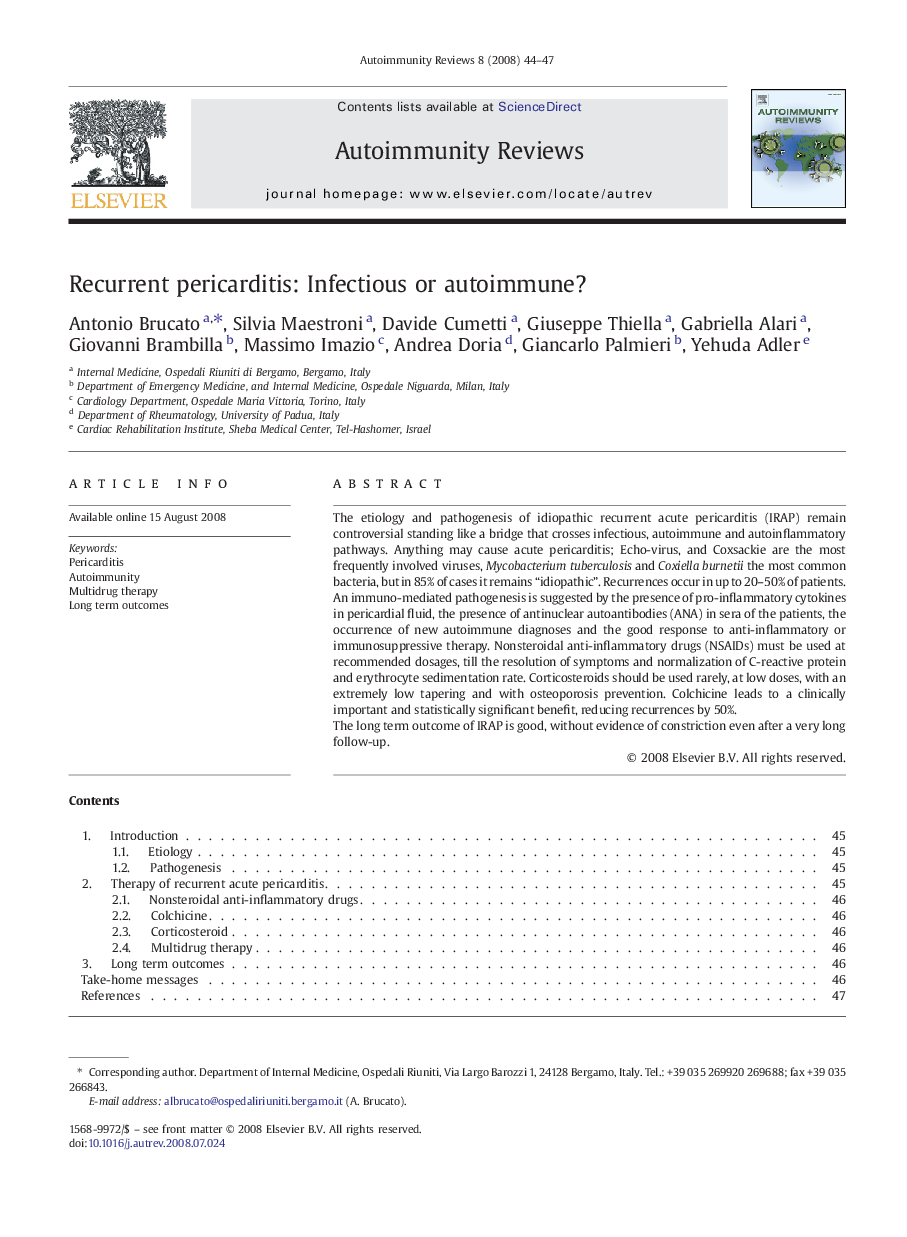| Article ID | Journal | Published Year | Pages | File Type |
|---|---|---|---|---|
| 3342439 | Autoimmunity Reviews | 2008 | 4 Pages |
The etiology and pathogenesis of idiopathic recurrent acute pericarditis (IRAP) remain controversial standing like a bridge that crosses infectious, autoimmune and autoinflammatory pathways. Anything may cause acute pericarditis; Echo-virus, and Coxsackie are the most frequently involved viruses, Mycobacterium tuberculosis and Coxiella burnetii the most common bacteria, but in 85% of cases it remains “idiopathic”. Recurrences occur in up to 20–50% of patients. An immuno-mediated pathogenesis is suggested by the presence of pro-inflammatory cytokines in pericardial fluid, the presence of antinuclear autoantibodies (ANA) in sera of the patients, the occurrence of new autoimmune diagnoses and the good response to anti-inflammatory or immunosuppressive therapy. Nonsteroidal anti-inflammatory drugs (NSAIDs) must be used at recommended dosages, till the resolution of symptoms and normalization of C-reactive protein and erythrocyte sedimentation rate. Corticosteroids should be used rarely, at low doses, with an extremely low tapering and with osteoporosis prevention. Colchicine leads to a clinically important and statistically significant benefit, reducing recurrences by 50%.The long term outcome of IRAP is good, without evidence of constriction even after a very long follow-up.
